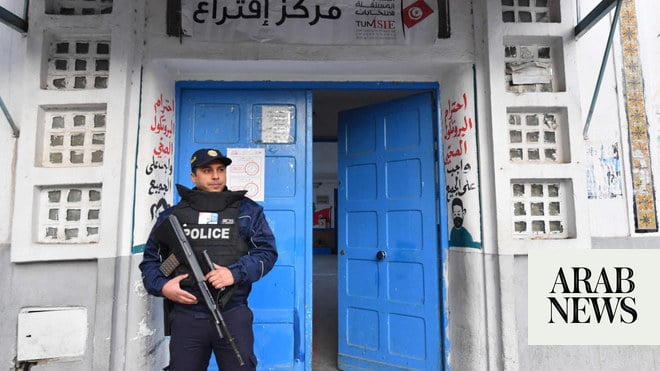
As polling officials tallied votes, Kenyans reflected on the cost of a do-over, deeply-divisive election marred by protests, clashes, tear gas and an opposition boycott that left at least four dead and scores wounded.
The countrys second presidential election in three months descended into chaos on Thursday as supporters of opposition leader Raila Odinga attempted to block voting, clashing with police who fired tear gas, water cannon and live bullets.
The vote came after a two-month political drama that began when the Supreme Court overturned the victory of President Uhuru Kenyatta in August 8 elections due to "irregularities".
Although the ruling was initially hailed as a chance to deepen democracy in one of east Africas most stable nations, its impact quickly soured, unleashing weeks of angry protests, acrimonious political rhetoric and intimidation of election officials.
And Odingas boycott of the re-run, on grounds the election commission had failed to make the necessary changes to ensure a free and fair vote, has assured Kenyatta a landslide victory.
But as votes continued to be tallied on Friday difficult questions remained over the credibility of an election boycotted by a large part of the 19 million registered voters.
Estimated figures compiled by the election board after polling shut pointed to a turnout of 48 percent, said election chief Wafula Chebukati.
Kenyas leading Daily Nation newspaper said the low turnout would mean "a serious question of legitimacy for the winner."
According to Kenyas election commission, the turnout in Thursdays election was much lower than the nearly 80 percent of registered voters who participated in an Aug. 8 election that was. That first disputed election was won by Kenyatta but was later nullified by the Supreme Court, sparking weeks of protest and acrimonious debate.
About 6.5 million people, or one-third of registered voters, went to the polls, said the commission.
Wafula Chebukati, the election commission chairman, said late Thursday the count was based on results from 267 out of Kenyas 290 constituencies.
While the August election saw long queues of voters and ballots being cast long after closing time in some places, Thursdays vote was a different story with many polling stations empty or welcoming only a trickle of people.
On Friday morning Chebukati said the central tally center in Nairobi had received results sheets from 90 percent of polling stations nationwide.
However, he had been forced to postpone the election until Saturday in four protest-hit counties in the countrys west where Odinga enjoys overwhelming support.
The move, he said, was due to "security-related" challenges.
But the governor of Kisumu, an opposition stronghold in western Kenya where violence raged on Thursday, rejected the move, saying people would not vote while they were "mourning".
He said he had invited Odinga and top leaders of his National Super Alliance coalition (NASA) to visit the city on Friday.
At least four people were shot dead and around 50 others wounded, most of them by live bullets, during Thursday vote, according to an AFP tally of figures from officials and medics.
One of the dead was a 19 year-old who died from blood loss after being shot in the thigh during clashes in Kisumu, police and hospital sources said.
A second person died from a gunshot wound to the leg in Kisumu, police said, after a polling center was "stormed" by a mob.
Police said another man was shot dead in Homa Bay, also in the west, "where a large mob attacked a small police facility" prompting officers to open fire "to protect themselves".
And a fourth man was shot dead in Nairobis Mathare slum, another hotspot in the capital where police fired water cannon and teargas to disperse demonstrators.
The confirmed casualties raised to 44 the tally of people killed in election-related violence since the August poll.
The crisis is the worst since a 2007 election sparked politically-driven ethnic violence that left 1,100 dead.
In its post-election editorial the Daily Nation warned Kenya is now "more fractured and unstable than ever before" but added, "Ours is a political problem that requires a political solution."
"There is a need to forge inclusivity."












